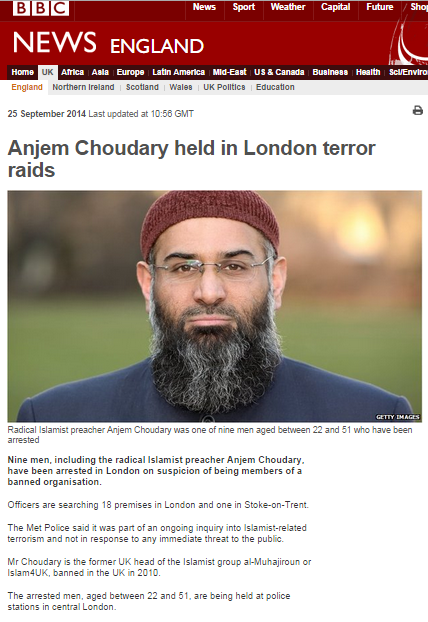Iran’s provision of weapons to Hizballah – sometimes via Syria – and Israeli efforts to prevent such transfers was common knowledge long before the civil war in Syria began in the spring of 2011.
In November 2009, for example, Israel intercepted the Francop which was carrying some 500 tons of weapons and ammunition.
“According to the shipping documents, the cargo was originally loaded in Bandar Abbas, Iran, brought by another ship to the Egyptian port of Damietta, and then transloaded to the Francop, with an ultimate destination of Latakia, Syria. This destination was confirmed by Syria’s foreign minister, although he denied that the shipment included arms. […]
Following the preliminary search, the Israelis escorted the Francop to the port of Ashdod, where a complete search revealed the full extent of the arms shipment. Labels on the shipping containers and shipping documents, as well as markings on ammunition crates and the ammunition itself, established a clear link to various Iranian government organizations, including the Iranian state shipping line and the Islamic Revolutionary Guard Corps.”
In January 2010 – well over a year before the conflict in Syria broke out:
“…American intelligence services reported the transfer of 26 M-6002 missiles of Syrian manufacture to Hizbullah in Lebanon. These missiles, with a range of over 250 km., are intended to reinforce Hizbullah’s ability to strike at the Israeli home front if and when hostilities erupt. […]
Israeli and Western intelligence services have long been aware of Syrian and Iranian involvement in Hizbullah’s arms buildup. Damascus Airport has been identified as the transit point for airlifts of Iranian arms that were subsequently transferred to Hizbullah via the open Syrian-Lebanese border, under the supervision of the Syrian security services.”
Iran’s transfers of weapons to Hizballah – which of course breach more than one UN Security Council resolution, although the BBC regularly fails to inform audiences of that fact – did not cease after war broke out in Syria in March 2011. The BBC, however, has long depicted alleged Israeli efforts to thwart those transfers as being connected to the war in Syria and another example of that misleading portrayal was seen on February 10th in the BBC World Service radio programme ‘Weekend‘.
Listeners heard presenter Julian Worricker introduce the item (from 01:17 here) as follows: [emphasis in italics in the original, emphasis in bold added]
Worricker: “We’ll also go live to Jerusalem fairly shortly in this half-hour in the light of the news that Israel is saying that one of its fighter jets has crashed after attacking Iranian targets in Syria, the pilots parachuting to safety in Israel.”
Worricker then turned to one of his studio guests – journalist Mary Dejevsky – citing her recent visit to Israel. Dejevsky described “the mood” in Israel as:
Dejevsky: “…a great feeling of security and success in terms of foreign policy that Israel had managed to stay aloof, mostly, from the war in Syria. But at the same time there was a kind of looming apprehension about the ever closer encroachment – as it was felt in Israel – of Iran and Iranian influence towards the Israeli border…”
She added:
Dejevsky: “…Israel has tried very hard to keep its intervention such as it has been – airstrikes on select convoys that they regard as coming from Iran and supplying Hizballah in Lebanon – that they’ve tried to keep those interventions as absolutely discreet as possible. And suddenly everything in a way has been blown open.”
Obviously the events that followed the incursion of an Iranian drone into Israeli airspace on the morning of February 10th – an incident which was notably absent from Worricker’s introduction – are not directly connected to previous alleged strikes by Israel against supplies of weapons to Hizballah. Julian Worricker, however, went on to suggest to listeners that efforts to prevent Hizballah getting weapons are in fact connected to the war in Syria.
Worricker: “I was going to pick you up on your remark of “aloof, mostly”, just stressing the mostly because clearly strikes by Israel in Syria are not uncommon per se. You alluded to the particular targets they would always say that they are aiming for when they do it but clearly when a fighter plane comes down – even in Israeli territory – that clearly ups the ante.”
Later on in the same programme (from 11:49), Worricker spoke to the BBC’s Tom Bateman in Jerusalem. After listeners had at last heard an accurate portrayal of the sequence of events that began with the infiltration of an Iranian UAV into Israeli airspace from Bateman, Worricker asked:
Worricker: “A word about Israeli action in Syria of this nature: how common has it been in recent times?”
Obviously airstrikes in response to a serious breach of Israel’s sovereignty by an Iranian UAV have not been “common” but Bateman’s response did not clarify that to listeners.
Bateman: “It is not uncommon and what Israel says is that it has two red lines for its engagement in Syria. They are cross-border fire that comes from Syria into the Golan Heights and what they describe as weapons transfers from Iranian forces to Hizballah – Lebanese militant fighters who are fighting inside Syria. They are the two triggers, if you like, that Israel says causes it to act inside Syrian territory – usually airstrikes – and they’re not uncommon. Israel rarely comments on them officially although a senior military figure said last year that the number was around a hundred of these attacks that have taken place over the last few years. So these things do happen. I think what is uncommon here of course is the event that this appears to have ended with: this Israeli jet coming down.”
Since 2013 the BBC has been telling its audiences – inaccurately – that Israel is “involved” in the conflict in Syria. As has been noted here in the past:
“In spite of the BBC’s suggestion to the contrary, Israel is not “involved in the conflict” in Syria. That conflict is a civil war between Assad loyalists (and their foreign allies) and anti-Assad rebels (and theirs) and Israel does not support one side or the other. Any actions which may have been taken by Israel are exclusively linked to the protection of its citizens.”
The BBC has also repeatedly downplayed the threats posed to Israel by the presence of Iran and Hizballah in Syria as well as their repeated aggressive rhetoric.
It perhaps therefore comes as no surprise to see that the BBC’s own journalists are unable to provide audiences with a lucid and informative account that distinguishes between the factors that lie behind the recent events in Israel and Syria and the separate topics of Iran’s supply of weapons to Hizballah in Lebanon and the civil war in Syria.
Related Articles:
BBC WS Newshour coverage of Iran drone story – part two
BBC WS Newshour coverage of Iran drone story –part one
BBC jumbles cause and effect, amplifies disinformation in Iran drone story – part one
BBC jumbles cause and effect, amplifies disinformation in Iran drone story – part two




